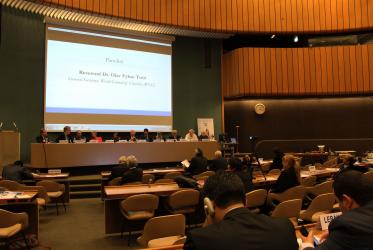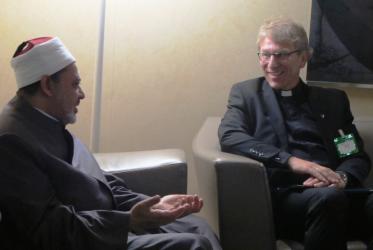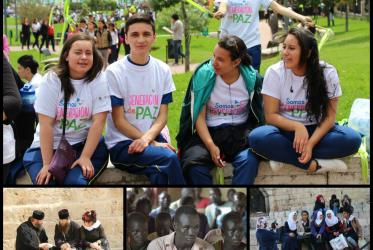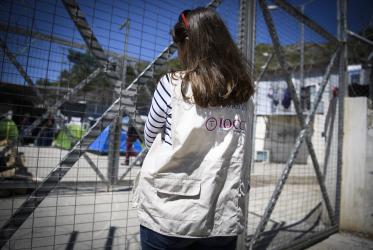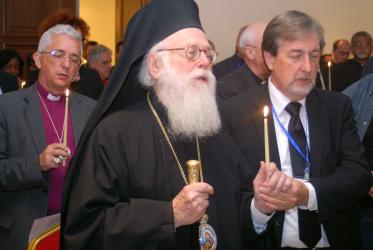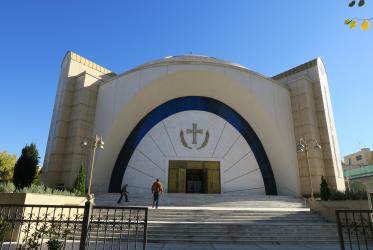Displaying 141 - 160 of 191
16 March 2017
Plans for 2017 decided by WCC Executive Committee
01 December 2016
Dialogue flourishes between WCC, Muslim Council of Elders
30 September 2016
Hielke Wolters: Apostle of mission strategies
01 August 2016
Pilgrimage and youth
28 June 2016
Winners of WCC photo contest announced
09 May 2016
WCC convenes strategic meeting on sustainable development goals
11 February 2016
Bossey students on their way to future of ecumenism
10 February 2016
Latvia celebrates Week of Prayer for Christian Unity
21 January 2016
Rebuilding a smashed church in Albania
23 December 2015
Orthodox church in Albania resurrected
23 December 2015
In Albania, churches’ share of health care has grown in new era
23 December 2015
WCC general secretary visits Rome
14 December 2015
